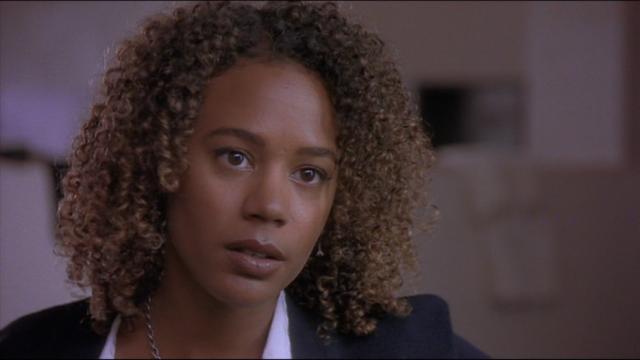Andrew Fleming’s The Craft is a cult classic whose influence on pop culture can still be felt today, especially considering studios’ renewed interest in young witches as of late.
It makes sense, then, that The Craft’s core quartet of actresses would still regularly be invited to meet their fans at genre conventions. Except, that’s not exactly been the case.
According to actress Rachel True (who portrayed Rochelle Zimmerman, the film’s only black lead character), there’s been at least one instance where only her white co-stars were asked to make a con appearance. True recently explained in a Twitter thread how Fairuza Balk (who played the unhinged Nancy Downs) let her know that she, Neve Campbell, and Robin Tunney were all requested for a recent unnamed con, but for some reason, True wasn’t looped into the communication.
While True said that her being overlooked could have been due to mere oversight, she also pointed out this is exactly the type of racist nonsense she had to deal with during the movie’s press circuit during the late ‘90s.
Kinda like the press junkets back in the day for the film. ¯_(ツ)_/¯
— Rachel True (@RachelTrue) January 26, 2019
This thread just made me rem the shitty feeling of watching the other 3 girls present that yr at the MTV movie awards while I sat in the audience despite having 2 movies coming out. These things aren’t the worst to suffer, but accumulated over the years are exhausting.
— Rachel True (@RachelTrue) January 26, 2019
There are a number of reasons why singling out just three of The Craft’s lead witches is a strange choice. The most obvious is that all four of the characters coming together is literally what sets the movie in motion. One of the first questions that would be asked at a panel with only three of the actresses would be where the fourth person is, to which nobody would have a good answer — and the whole gathering would have an oddness to it.
More than that though, True’s role in The Craft is something that’s deeply important to people — particularly genre fans of colour — who were able to see themselves in Rochelle, a black woman navigating a perilously white world. In fiction, there’s a way in which positive, “cool” depictions of witchcraft tend to be focused on white women.
(In no particular order, see: Bewitched, The Chilling Adventures of Sabrina, The Witches, American Horror Story, OG Charmed, Hocus Pocus, Practical Magic, The Witches of Eastwick — you get the point. The list is long.)
Characters like Rochelle stand out not just because they’re portrayed by black actors, but because they’re often a reflection on what it feels like to be a fan of these kinds of stories, but weary of their disproportionate focus on white women. Rochelle’s a particularly interesting example because she’s the only black character in the movie — something that stands out so much that it’s become something of a joke that we never even see her family, though we see the other three characters’ home lives.
(True revealed there was, at one point, a scene in the movie with Rochelle’s family, but it was cut.)
Those are the sorts of conversations that can sometimes come up at conventions when you’ve got the only actor of colour from the movie who people know by name. And it’s a valuable conversation to have.
In response to True’s Twitter thread, a number of her fans seemingly took their frustrations to social media to vent about conventions, even though she did not name one in particular, and she soon asked them not to do so. But, the attention around her call out seems to have resulted in some good, as True’s now scheduled to join her fellow witches at this year’s Monster-Mania Con in Cherry Hill, New Jersey in March.
Happy to announce I’ll be joining The Craft witches at @monstermania in March. Excited to see all the ladies together for 1st time since ‘96???? Hopefully you’ll see us at other events too! Thank you all so very much for the love, suppoprt & positive vibes!!!????????????
— Rachel True (@RachelTrue) January 31, 2019
“This is not about self absorption. It’s about racism, parity & [money] speaking up is costing me [money] but may help younger folk coming up down the line achieve those things,” True wrote. She also noted she’s often the only person of colour at the conventions she is invited to: “Ultimately my aim’s to advocate for myself & maybe help diversify these conventions.”
